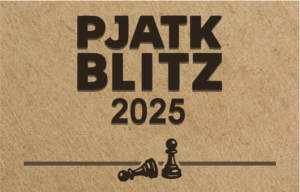PJAIT Blitz 2025 - a chess tournament for the PJAIT community!

Within Horizon Europe - the key European Union program for funding research and innovation, work will be carried out whose results will support combating climate change, achieving sustainable development goals, and the economic growth of the European Union. Kozminski University, as the scientific coordinator of the Horizon Europe research project: Link4Skills, announced the official start of the project. The project is planned for 3 years (2024-2026), covers 4 continents (Europe, Africa, Asia, and America), and focuses on challenges related to the shortage and flow of skills.
The original Link4Skills project will concern the global flow of talents and skills between third countries and the EU. The global consortium's work will be led by Prof. Izabela Grabowska from Kozminski University together with the team of The Center for Research on Social Change and Mobility (CRASH). Kozminski University's partners in the project implementation include twelve higher education institutions and institutions from around the world: Internationales Institut Fuer Angewandte Systemanalyse (Austria), Toronto Metropolitan University (Canada) in collaboration with India, Universität Osnabrück (Germany), Erasmus Universiteit Rotterdam (Netherlands), Association Migration Internationale - AMI (Morocco), University of Ghana, Scalabrini Migration Center Inc. (Philippines), Higher Educational Establishment Ukrainian Catholic University, International Centre for Migration Policy Development (Austria), and the native Polish-Japanese Academy of Information Technology. The consortium will also be supported by two business companies: ITTI (Poland) and SPIA UG (Germany).
Project in Response to Europe's Challenges
The rapidly aging and shrinking societies of the European Union, the slowdown in economic growth, the inflation crisis, changing levels of education, insufficient impact of lifelong learning programs, and the sudden influx of migrants with various skills have revived key questions regarding the sustainability and resilience of the EU economy in the context of its human capital. The issue of skill shortages, after all, comes up in public discourse every time there is a "lack of hands to work" in a specific sector.
- On one hand, there is a need for specialized knowledge regarding skill shortages, on the other hand, it is necessary to ensure that existing skill gaps do not hinder growth, people are equipped with skills enabling them to adapt to changes and use modern technologies, and the flow of skills between markets is balanced, efficient, and fair, without draining the labor markets of sending countries - emphasizes Prof. Grabowska, the scientific coordinator of the Horizon Europe: Link4Skills project. - We are extremely pleased that as a Polish university we can be the leader of a global project that will allow us to obtain the necessary scientific knowledge and develop practical solutions and recommendations for various partners: employers and local, national, and European officials.
As part of the Link4Skills project, scientists will identify existing and future "required skills." They will seek ways in which the European Union should respond to current and upcoming skill shortages. They will also check how to acquire key competencies, using existing human resources, modern technologies, and other markets. The scientists will work on identifying and analyzing migration corridors through which qualifications and skills flow, and creating an AI-supported Link4Skills Navigator, which will help employers and officials make knowledge-based decisions - how to take actions, recruitments, programs, and partnerships leading to a balanced flow of talent and skills between third countries and the EU.
Detailed information about the project can be found in the EU CORDIS database: https://cordis.europa.eu/project/id/101132476
Link4Skills has received funding from the European Union Horizon Europe project HORIZON-CL2-2023-TRANSFORMATIONS-01 grant agreement 101132476.
